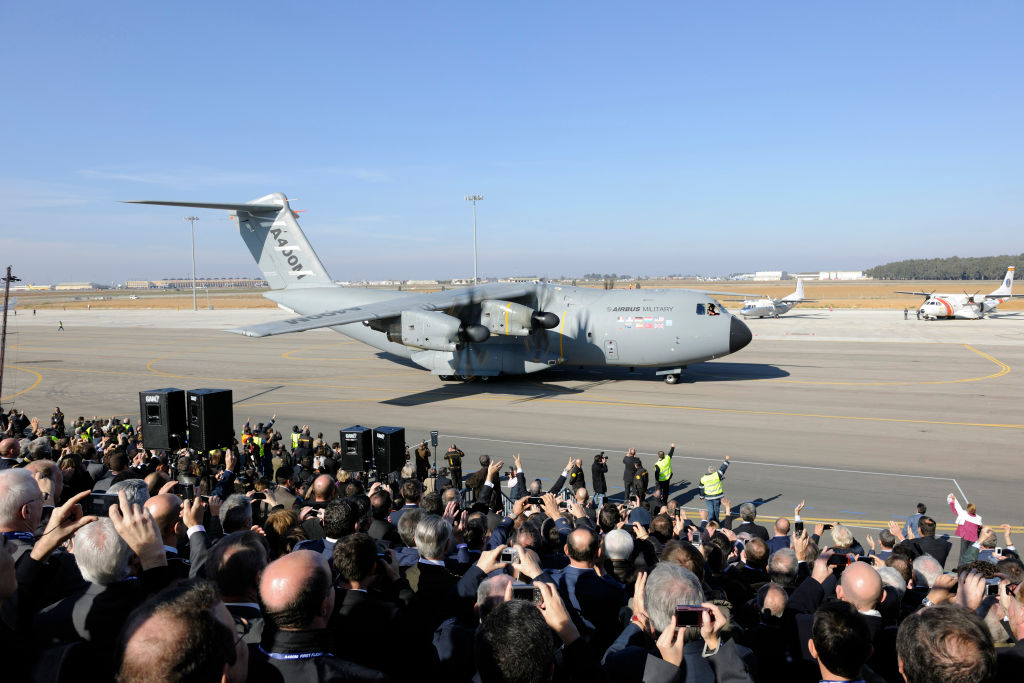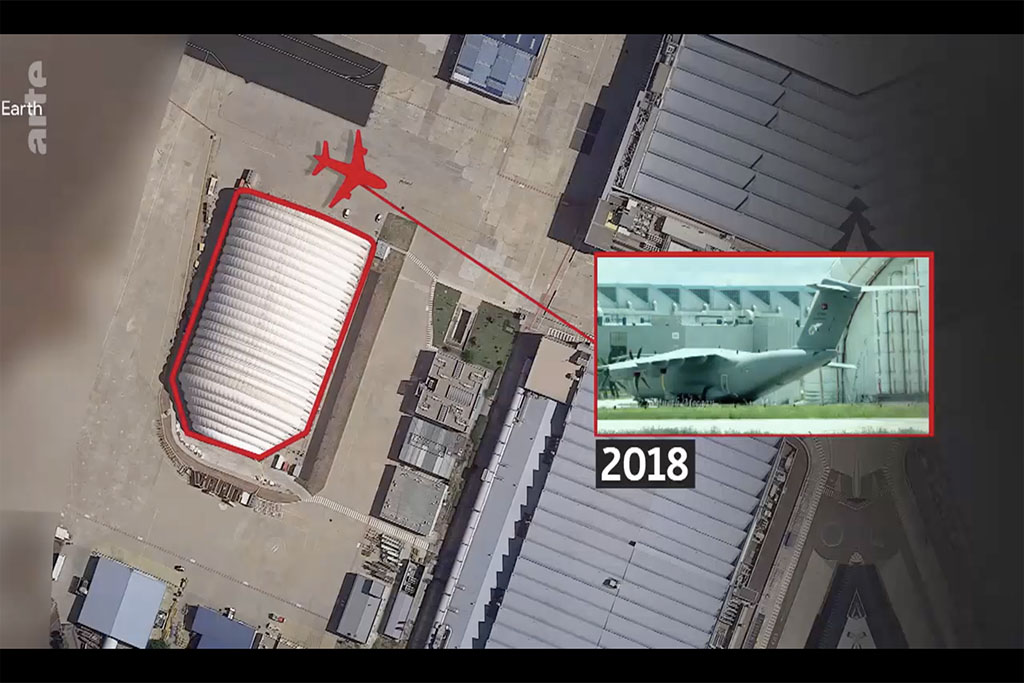Airbus maintaining Turkey’s war
European giant aids Turkey with military airbridge to embargoed Libya
France, Germany and Italy have threatened to impose sanctions against those violating the United Nations arms embargo on Libya. The aim, ostensibly, is to prevent the next battle in this cynical proxy war. Our investigation, however, shows that those same EU countries are licensing European planemaker Airbus to provide critical services to Turkey’s military cargo aircraft, enabling it to breach that same embargo, and continue its intervention in Libya.
These services for the Airbus 400M include maintenance in both Spain and Turkey and training for all pilots involved, including regular refresher courses. Airbus also has a major maintenance deal for the A400M with the inter-governmental Organisation for Joint Armament Cooperation (OCCAR) that explicitly cites Turkey as a customer.
According to legal experts, Airbus’s support for Turkish A400M aircraft being deployed in the Libya conflict constitutes a violation by these states and corporations of their obligations.
Our findings have already had an impact, prompting calls for policy changes and a question in the European Parliament.
METHODS
In this investigation, our team combined traditional reporting methods with open-source intelligence techniques to document how Turkey’s A400M fleet is completely reliant on support by Airbus. Evaluating flight radar data along with sightings by plane spotters, we used information gleaned from job advertisements, satellite imagery, company brochures and internal documents to piece together the puzzle.
When the maintenance is carried out at the aircraft’s home base in Kayseri, Turkey, an Airbus team has oversight, with Airbus mechanics regularly travelling to Turkey, we discovered. When the aircraft fly to Spain for maintenance, they land at the Airbus facility in Getafe. The A400 pilots are trained — regularly and rigorously, it appears — by Airbus at its headquarters in Seville. And OCCAR’s extensive maintenance commitment for the A400M is effectively directed by Airbus, we found.
As the actual liability stemming from these maintenance agreements is complicated and technical, we worked with our partners at Global Legal Action Network and compiled an extensive legal analysis to accompany our findings.
STORYLINES
Last year, when Germany held the European Union’s rotating presidency, the German government had expressed its commitment to mediating in the Libya war and enforcing the UN arms embargo. And it followed through: the EU imposed sanctions on three companies, including a Turkish one, that are accused of violating the embargo on Libya.
But there were also violations of the embargo closer to home, it turns out. Turkey, which continues to maintain a de facto air bridge with Libya, transporting arms and fighters to the war-torn state, has counted on a European-made military cargo plane to conduct these flights.
Post-sale services have created a strong dependency between the EU states and corporations that supply arms and the abusive end-users. Through such “invisible links,” these European actors have contributed to serious violations of international law, including war crimes, and in some cases enabled proxy wars. But despite their scale and significance, such activities are under-regulated by both international and domestic law and have remained, for the most part, hidden from the public eye.
Not anymore. The debate fuelled by our findings have stirred policy-makers to demand action. Reports from our Arms Tracking newsroom in Germany’s ARD and Stern Magazine prompted MPs to ask for legal reform with the former president of the Federal Office for Economic Affairs and Export Control, Arnold Wallraff, describing the situation as “Absurdistan.” “If Turkey breaks the Libya embargo, such technical support must stop,” he said.
And in August last year, a question was tabled in the European Parliament on the basis of our findings, asking the European Commission to investigate services provided by the Airbus Group and authorized by EU states — Spain, Germany, Belgium, France and Italy as members of the Organisation for Joint Armament Cooperation (OCCAR) — and adopt enforcement measures where necessary.
To keep up to date with Lighthouse investigations sign up for our monthly newsletter
The Impact
Our investigations don’t end when we publish a story with media partners. Reaching big public audiences is an important step but these investigations have an after life which we both track and take part in. Our work can lead to swift results from court cases to resignations, it can also have a slow-burn impact from public campaigns to political debates or community actions. Where appropriate we want to be part of the conversations that investigative journalism contributes to and to make a difference on the topics we cover. Check back here in the coming months for an update on how this work is having an impact.



